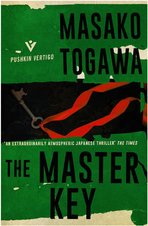
The story is told episodically and out of chronological sequence, and at the start of the novel we are given glimpses of both the secretive hiding of something sinister into the ground and the accidental, almost fated death of a man in women's clothes at a crossroads. We then get introduced to some of the residents, and as their tales begin to unfold, the strengths of Masako Togawa as a storyteller interested in delivering objective, quirky characterizations become clear.
Suwa Yatabe, a former prodigal violinist who now pushes through her days teaching indifferent children the rudiments of musicianship, finds that an unknown person seems to be intent on bringing a shameful past incident – specifically, the accusation that she stole a priceless violin from her mentor decades ago – back into the present. Another woman, retired schoolteacher Yoneko Kimura, becomes obsessed with proving that a neighbor was involved with the kidnapping of an ex-pupil's child. There are other characters too, well defined and off-kilter, including an eccentric who stalks the building in search of discarded fish bones for a stew she believes to be therapeutic, and a religious zealot who brings a questionable guru into the apartments, determined to use the man's brand of mysticism to force new light on dark subjects involving the tenants.
The separate stories are engrossing, and the shifting focus from one character to another as one story gives way to another is successful. I was consistently reminded of the same style of observational distancing that is a hallmark of Japanese poetry and prose. The author never judges or moralizes when presenting her characters, but at the same time we are allowed to see and understand each woman's emotions, motivations, and personal beliefs through simply stated writing. For most of this relatively brief book, the characters, their plights, and their fears or suspicions were more than enough to stay engaged.
It is only in The Master Key's ending, when Masako delivers her version of the detective dénouement where everything is explained away by yet another character, where the story falters. Two reasons for this: ironically, it's not a novel that really needs an extra twist where the reader realizes that more has been happening than the busy events which have been presented; and choosing to give a heretofore incidental or off-stage character the responsibility of explaining all of the points makes the "resolution" feel superficial and rushed. I know this twist and this section is supposed to satisfy, but instead it reads like outline notes rather than an organic new layer to the intriguing events that have come before.
The Master Key was brought to my attention on the review site Netgalley, where Pushkin Vertigo Press is launching a reprint of this 55-year old novel. I received a reading copy in exchange for an honest review. I'm glad to have read it, and the book is worth a look for fans of international mysteries and unconventional crime fiction.
 RSS Feed
RSS Feed